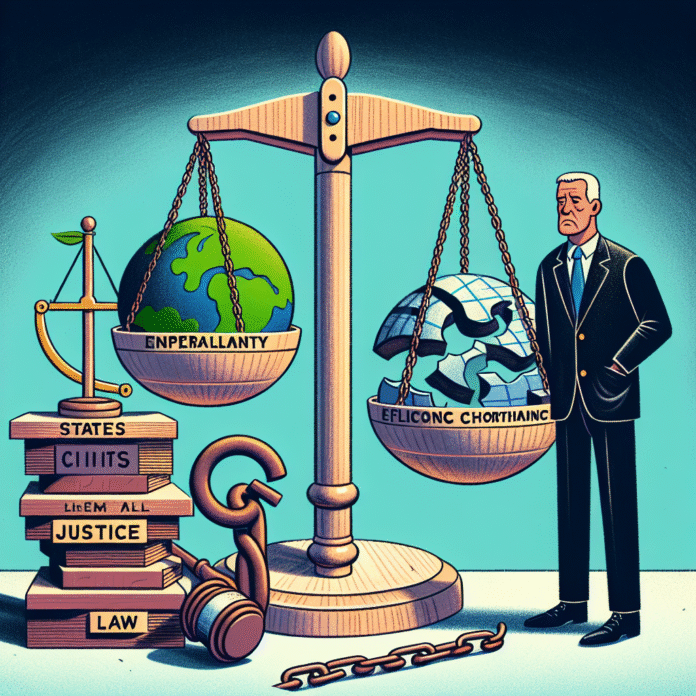States May Address Gaps in Climate Disclosure Enforcement
States Could Address Potential Enforcement Gaps in Climate Disclosures
As the urgency for climate action escalates, the importance of transparent climate disclosures has taken center stage. While federal regulations provide a foundational framework for climate-related reporting, states have the opportunity to fill potential enforcement gaps that may arise. This is particularly significant as businesses and investors increasingly demand clear and comprehensive information about climate risks and sustainability practices.
Current Landscape of Climate Disclosures
In recent years, there has been a notable shift in the regulatory environment surrounding climate disclosures. The U.S. Securities and Exchange Commission (SEC) has proposed rules aimed at enhancing the quality and quantity of climate-related disclosures. However, the implementation of these regulations may not be uniform across all sectors or regions, leading to uneven compliance and potential loopholes.
State-Level Initiatives
Several states are already taking proactive measures to ensure that climate disclosures are robust and enforceable. For instance, California has enacted legislation requiring companies to disclose their greenhouse gas emissions and climate-related financial risks. This approach not only promotes transparency but also holds companies accountable for their environmental impact.
Moreover, states like New York and Washington are exploring similar frameworks, recognizing that localized regulations can effectively address specific environmental challenges faced by their communities. By implementing state-level climate disclosure requirements, these jurisdictions can create a more cohesive and comprehensive approach to climate accountability.
The Role of Enforcement
One of the major challenges with climate disclosures lies in enforcement. Federal regulations may lack the necessary teeth to ensure compliance, leaving companies with little incentive to fully disclose their climate-related risks. State governments can play a critical role in bridging this gap by establishing enforcement mechanisms that ensure companies adhere to disclosure requirements.
This could involve regular audits, penalties for non-compliance, and incentives for companies that exceed disclosure standards. By fostering a culture of accountability, states can encourage businesses to view climate disclosures not just as regulatory obligations but as integral components of their corporate responsibility.
Collaboration Between States and Businesses
While state regulations can enhance enforcement, collaboration between state governments and businesses is essential. Engaging with stakeholders, including industry leaders and environmental advocates, can help create realistic and effective disclosure frameworks. States can provide guidance on best practices, while businesses can offer insights into the challenges they face in reporting climate-related information.
Furthermore, promoting education and resources about climate risks and sustainability can empower businesses to improve their reporting practices voluntarily. By fostering a collaborative environment, states can drive meaningful change in corporate behavior and enhance the overall effectiveness of climate disclosures.
Looking Ahead
As the landscape of climate disclosures continues to evolve, states have a unique opportunity to take the lead in addressing enforcement gaps. By implementing robust regulatory frameworks and fostering collaboration with businesses, they can enhance transparency and accountability in climate-related reporting.
In conclusion, while federal regulations lay the groundwork for climate disclosures, state initiatives can significantly strengthen enforcement and compliance. As the impacts of climate change become increasingly evident, it is crucial for both state governments and businesses to work together to ensure that climate disclosures are not only mandatory but also meaningful. Through proactive measures, states can play a pivotal role in driving the transition toward a more sustainable and responsible corporate landscape.


